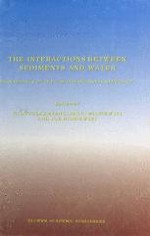1997 | OriginalPaper | Chapter
A Study of Transport and Mixing in Natural Waters Using ICP-MS: Water-Particle Interactions
Authors : Susan C. Paulsen, E. John List
Published in: The Interactions Between Sediments and Water
Publisher: Springer Netherlands
Included in: Professional Book Archive
Activate our intelligent search to find suitable subject content or patents.
Select sections of text to find matching patents with Artificial Intelligence. powered by
Select sections of text to find additional relevant content using AI-assisted search. powered by
Water-particle interactions often may result in non-conservative chemical behavior when waters from different sources mix with one another. The results presented in this paper address the role of these interactions in freshwater and estuarine mixing and support a larger study to develop a method to help resolve flow distribution and water quality questions in surface waters using a source water “fingerprinting” technique. Inductively coupled plasma-mass spectrometry (ICP-MS) is used to “fingerprint” each water source based upon the concentrations and relative proportions of elements in that source. Estimates can then be made of the fractions of various “fingerprinted” waters in water samples that contain a mixture of source waters. Such estimates depend upon the selection of tracers that behave conservatively during mixing; in this paper, results to establish the maximum particle exchange capacity and conservative mixing behavior are presented for samples collected from the Sacramento River-San Francisco Bay-Delta estuary. Elements likely to behave conservatively include boron, sodium, magnesium, potassium, calcium, strontium, and molybdenum.
